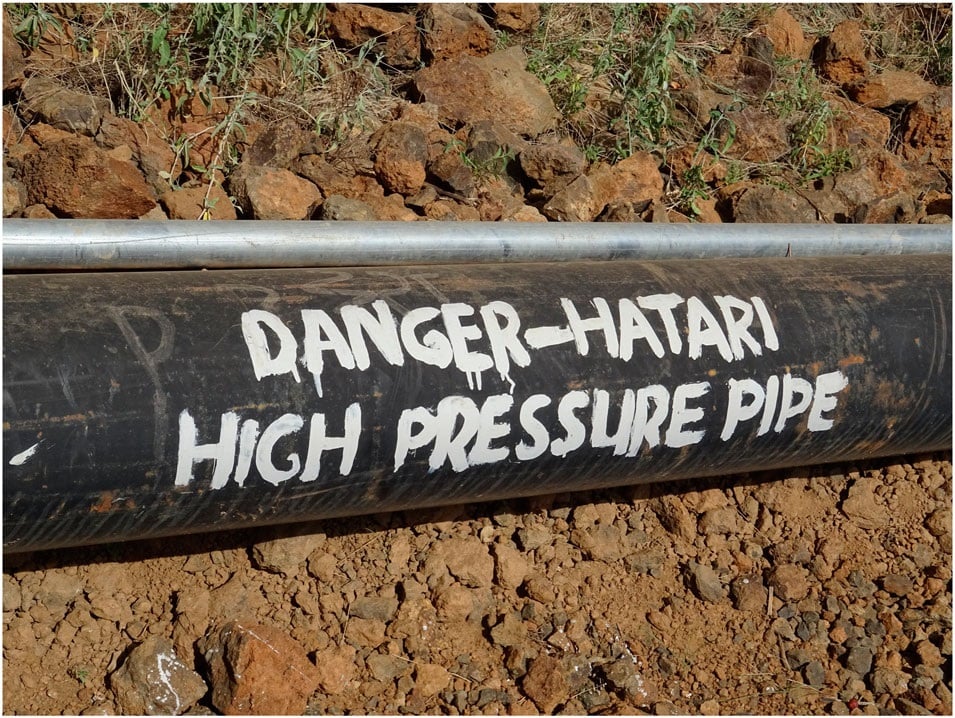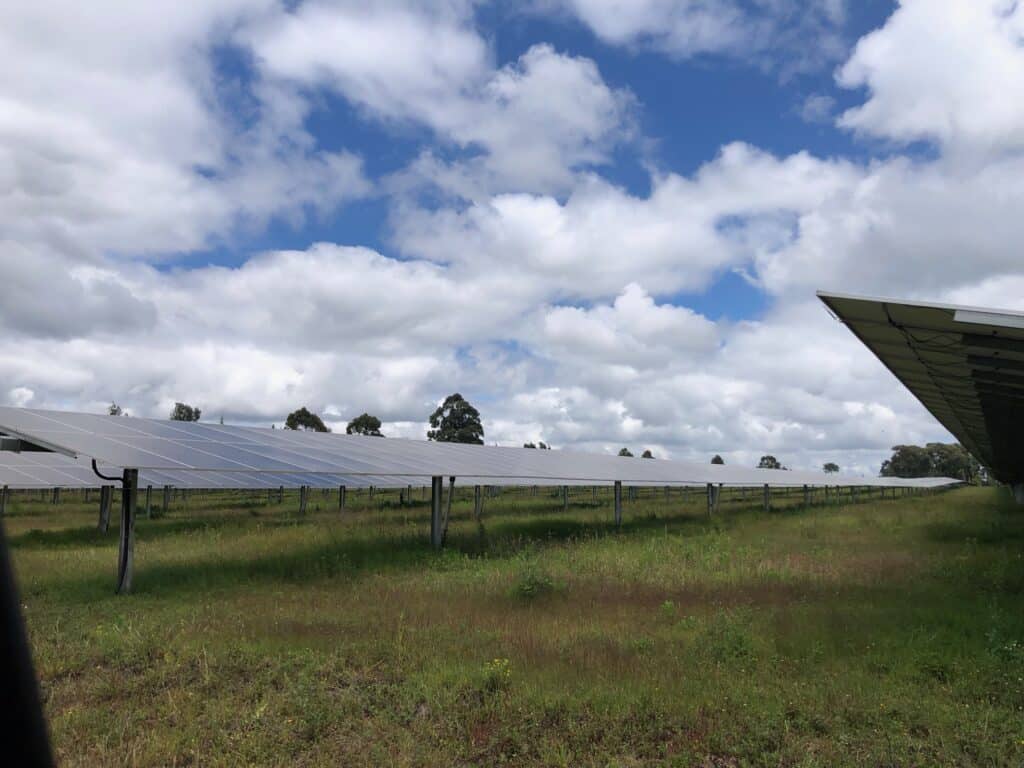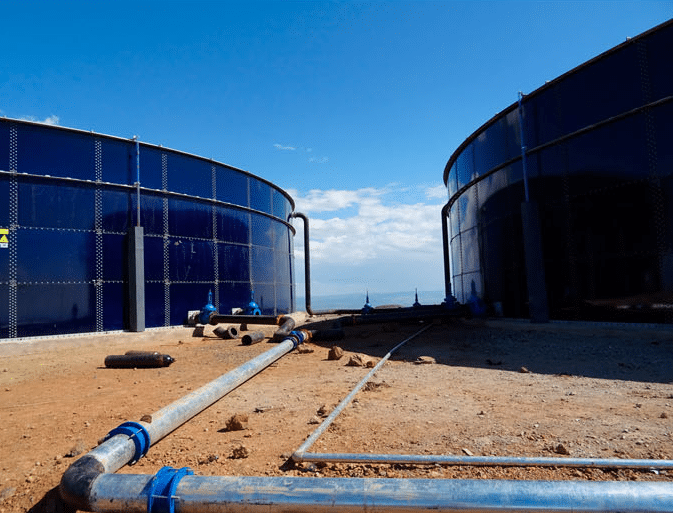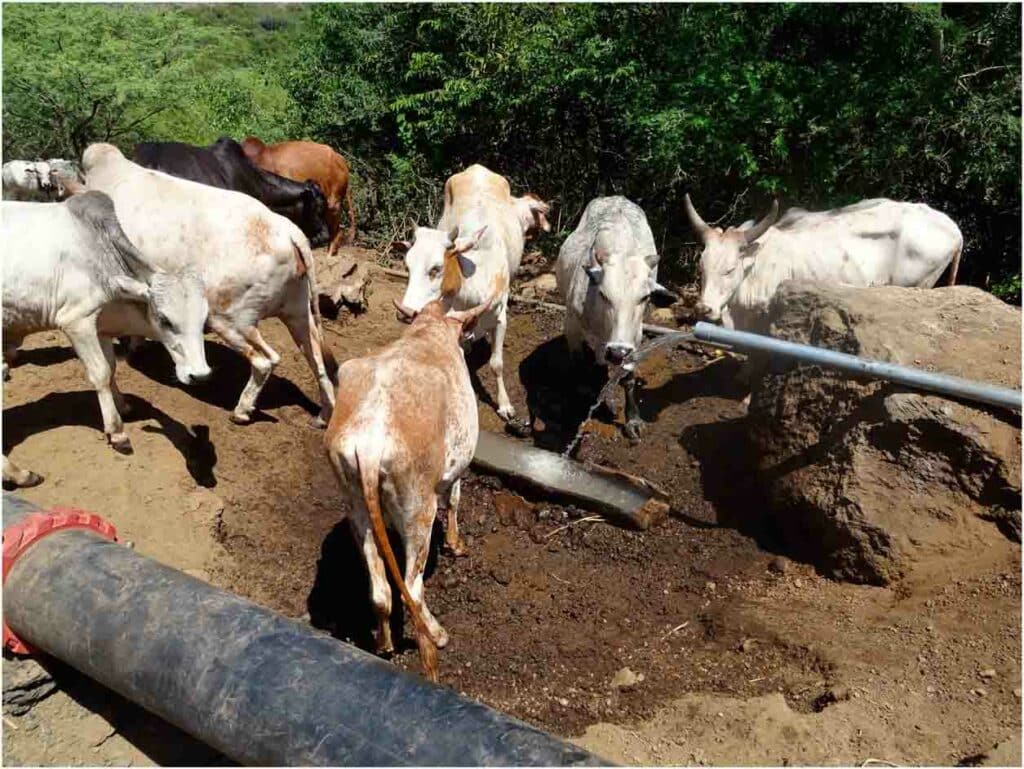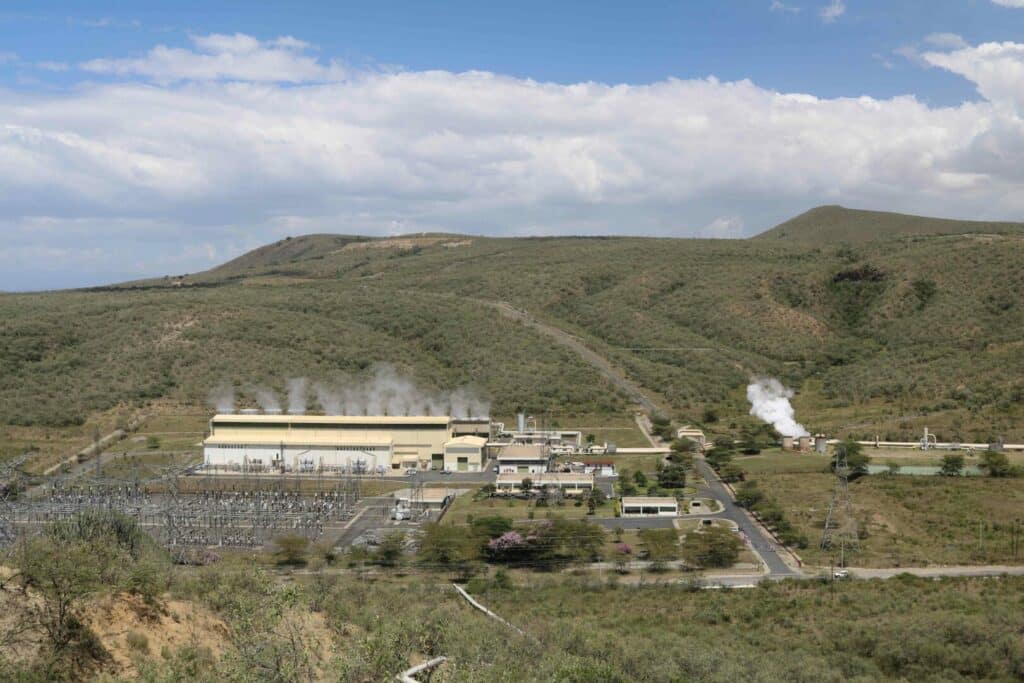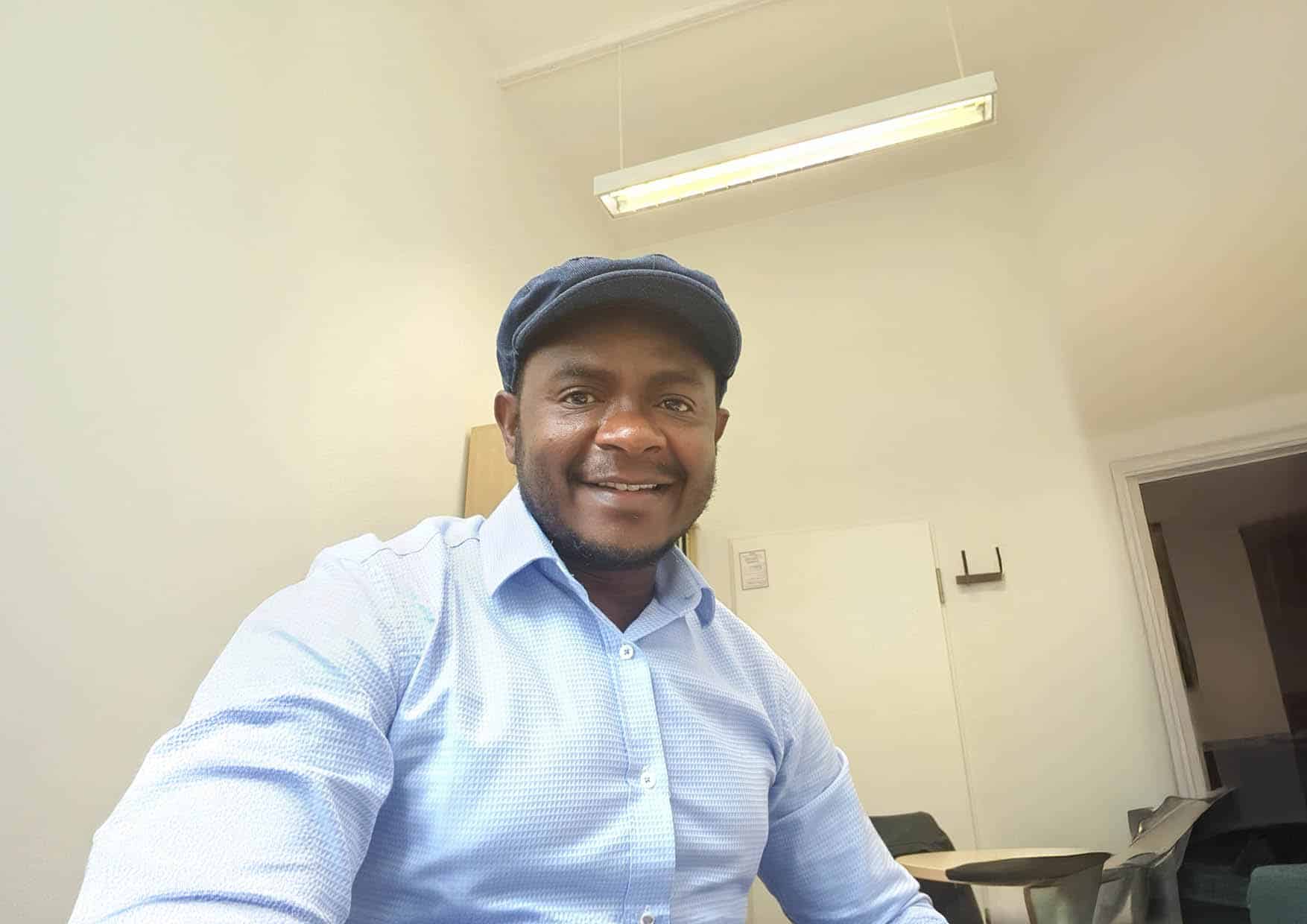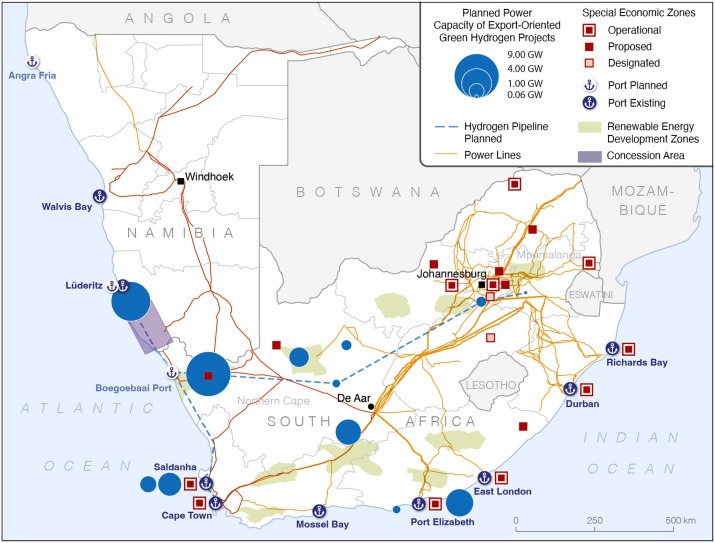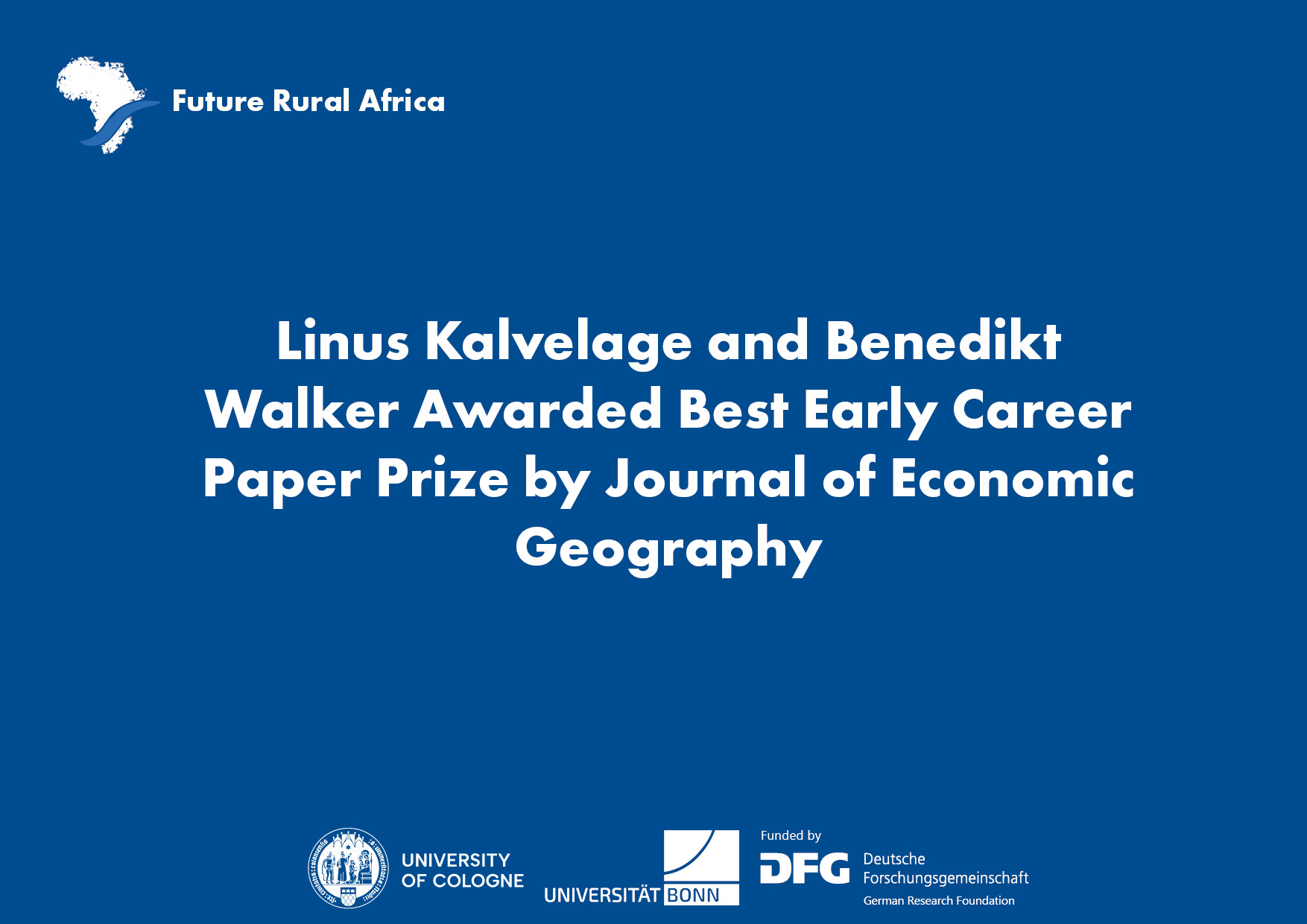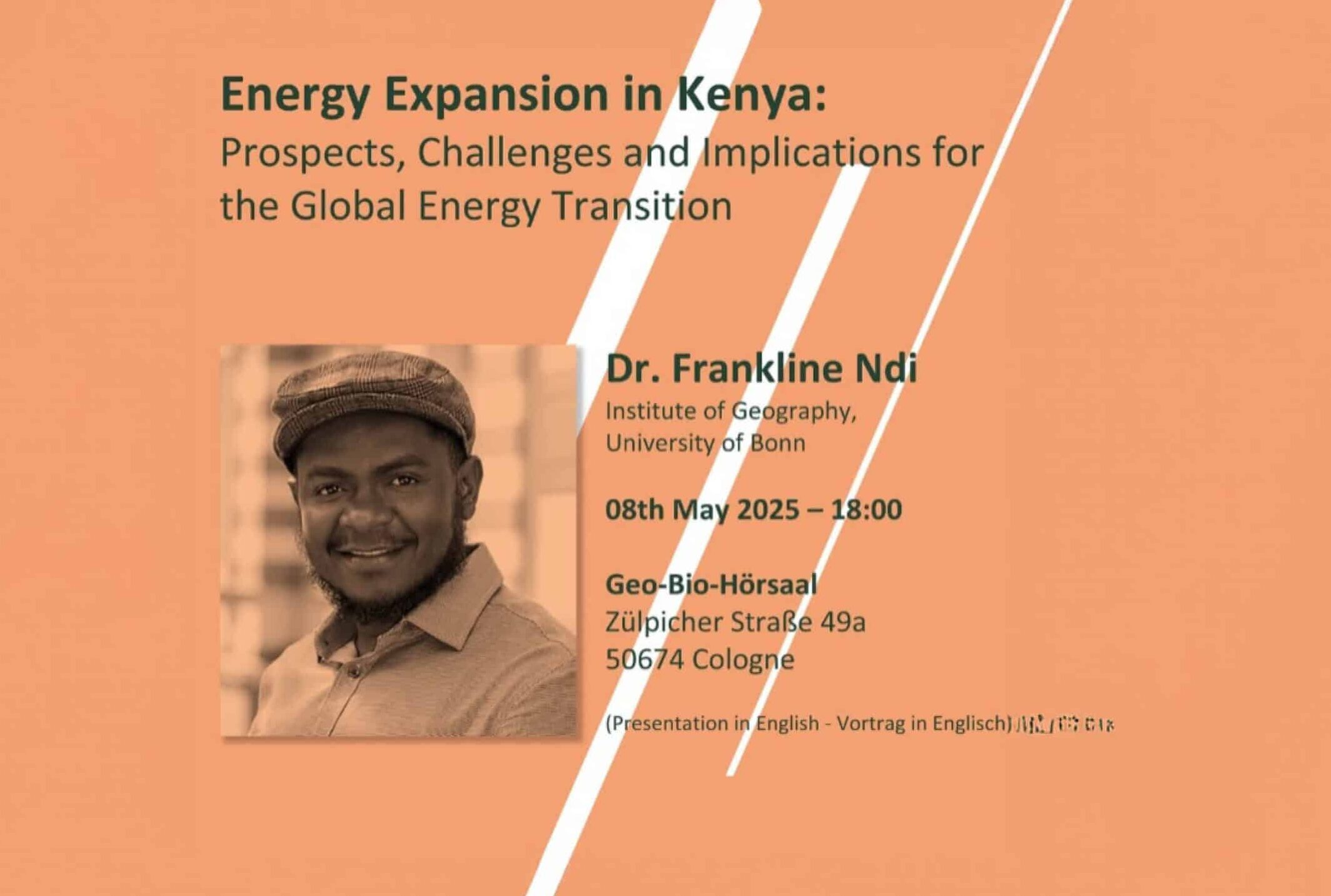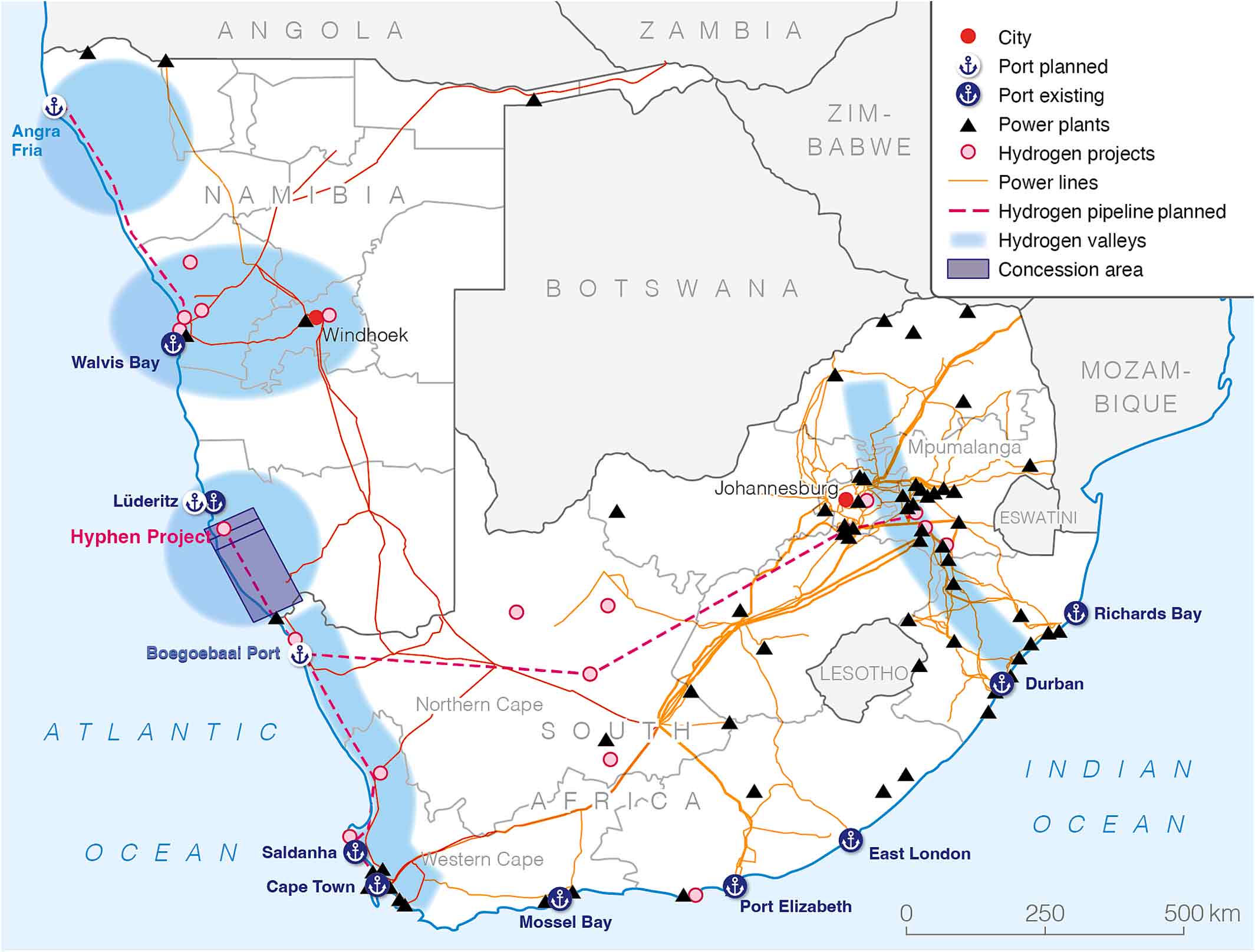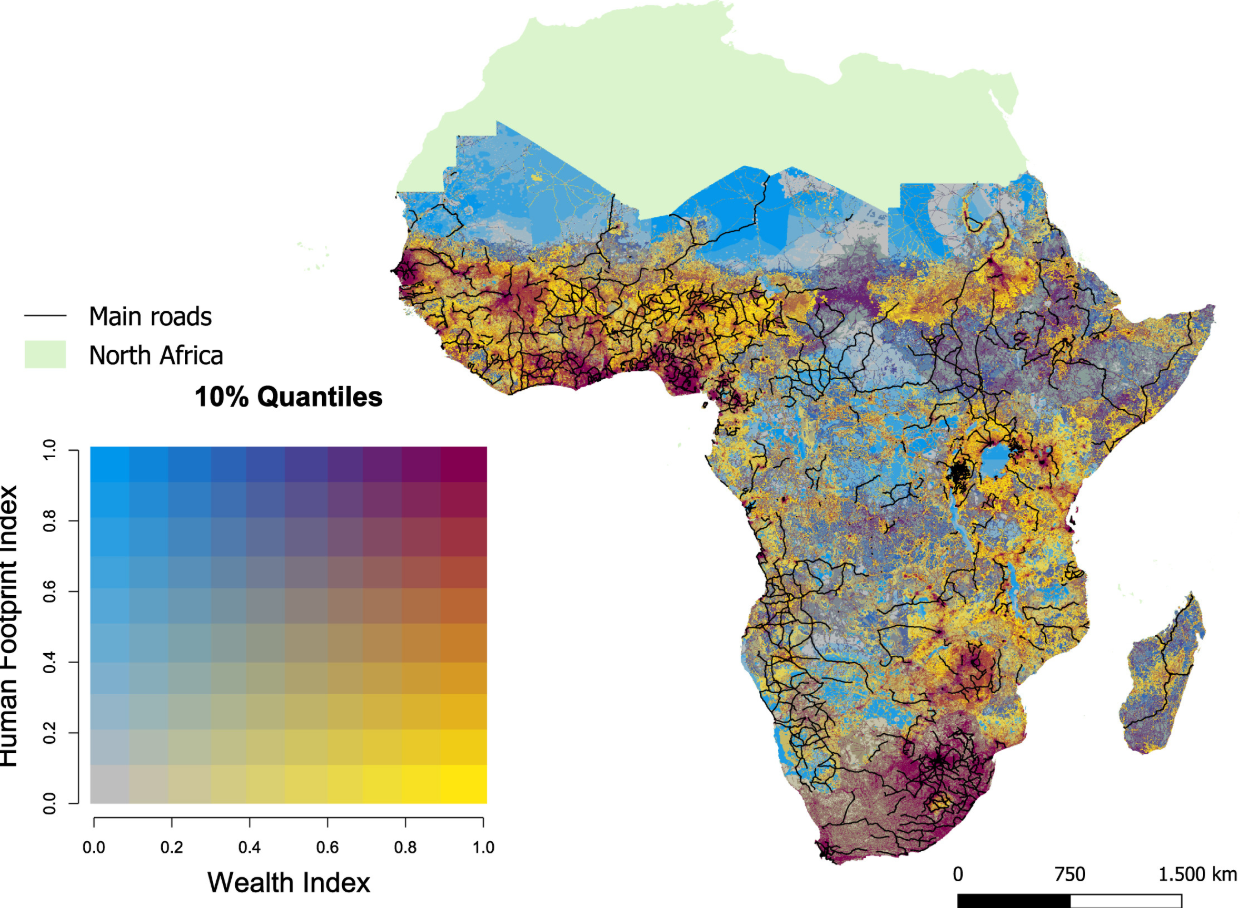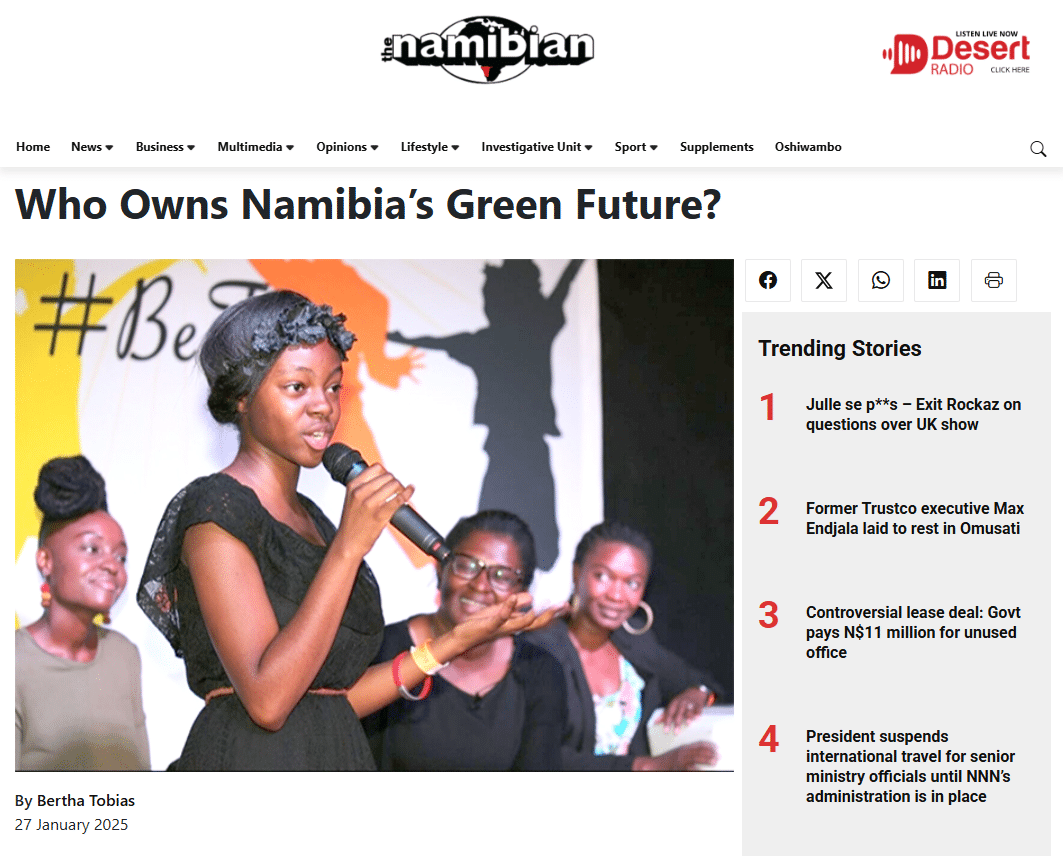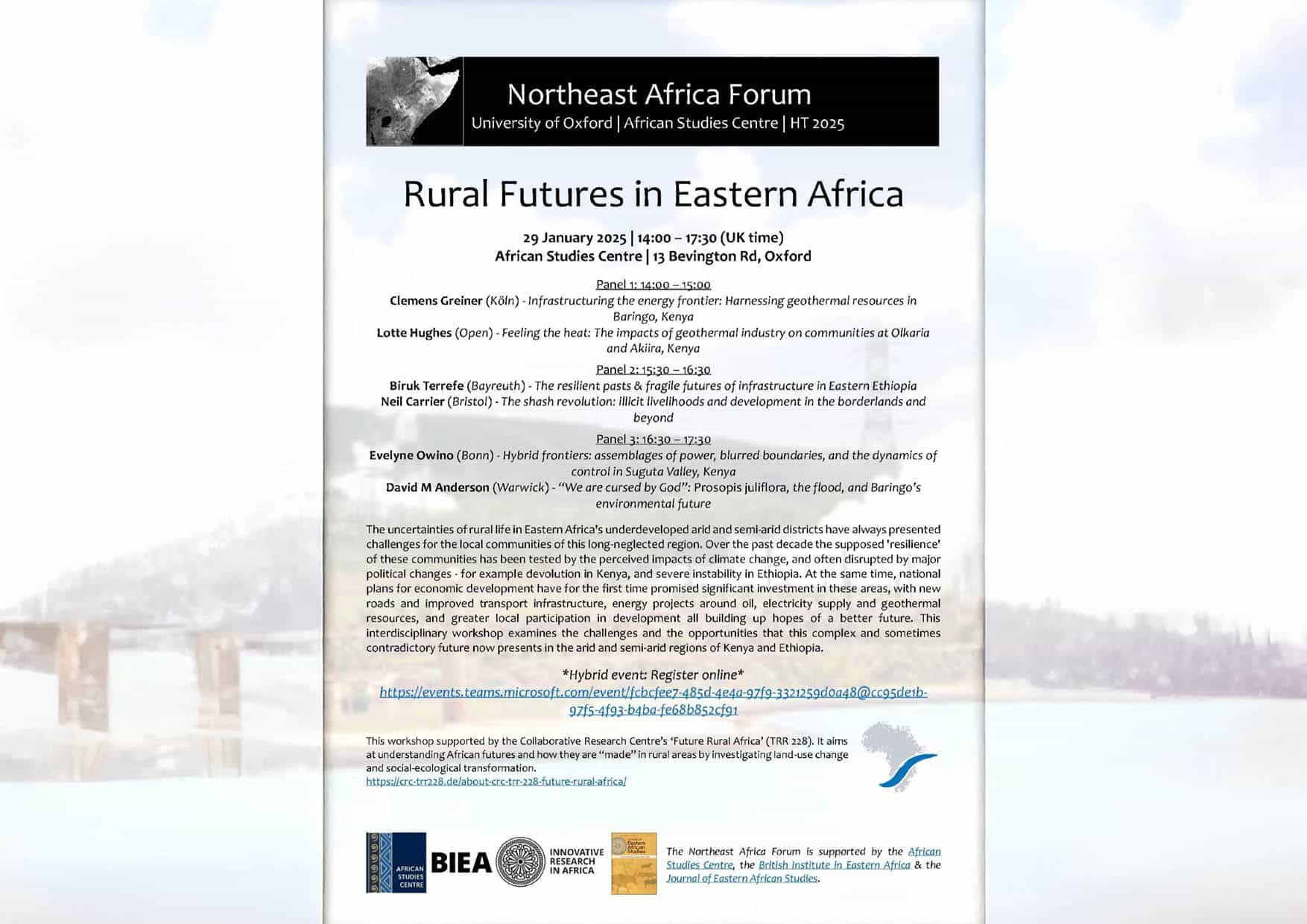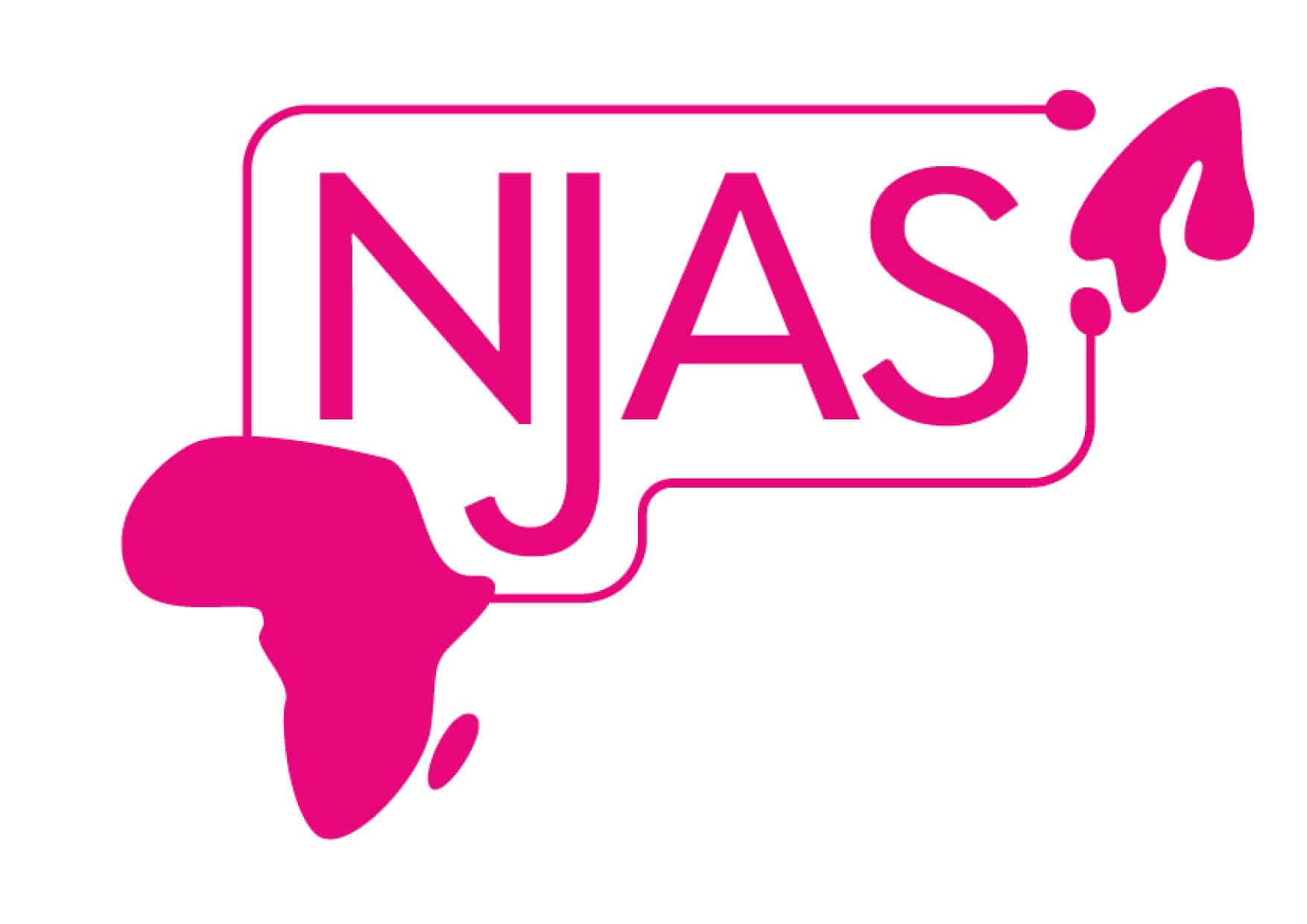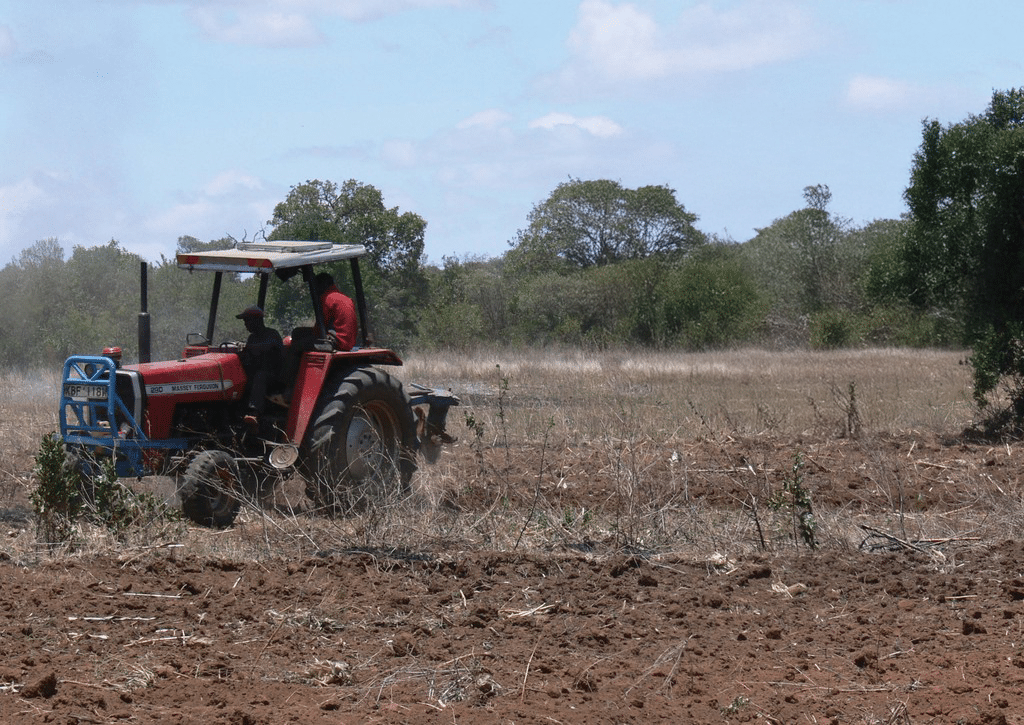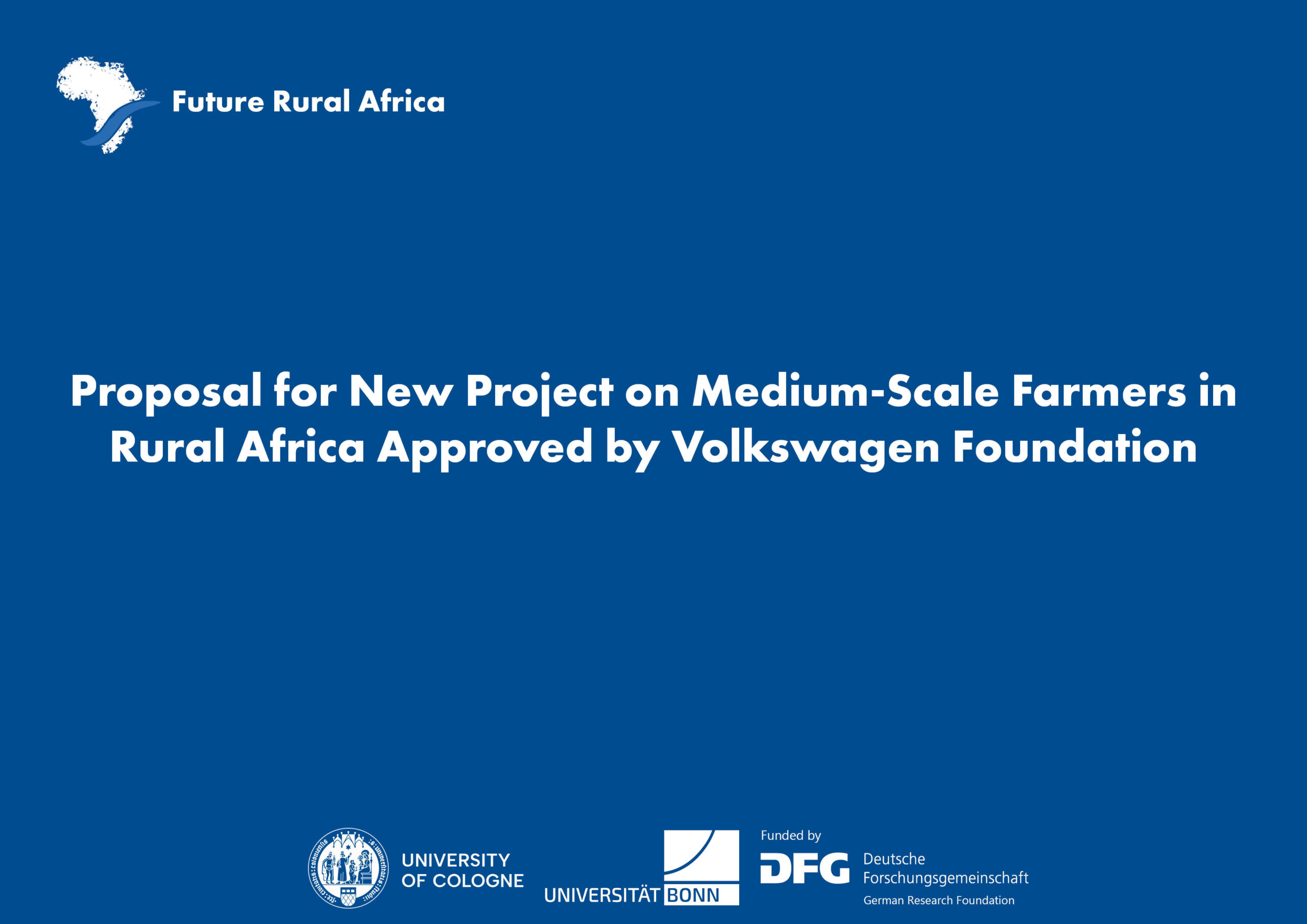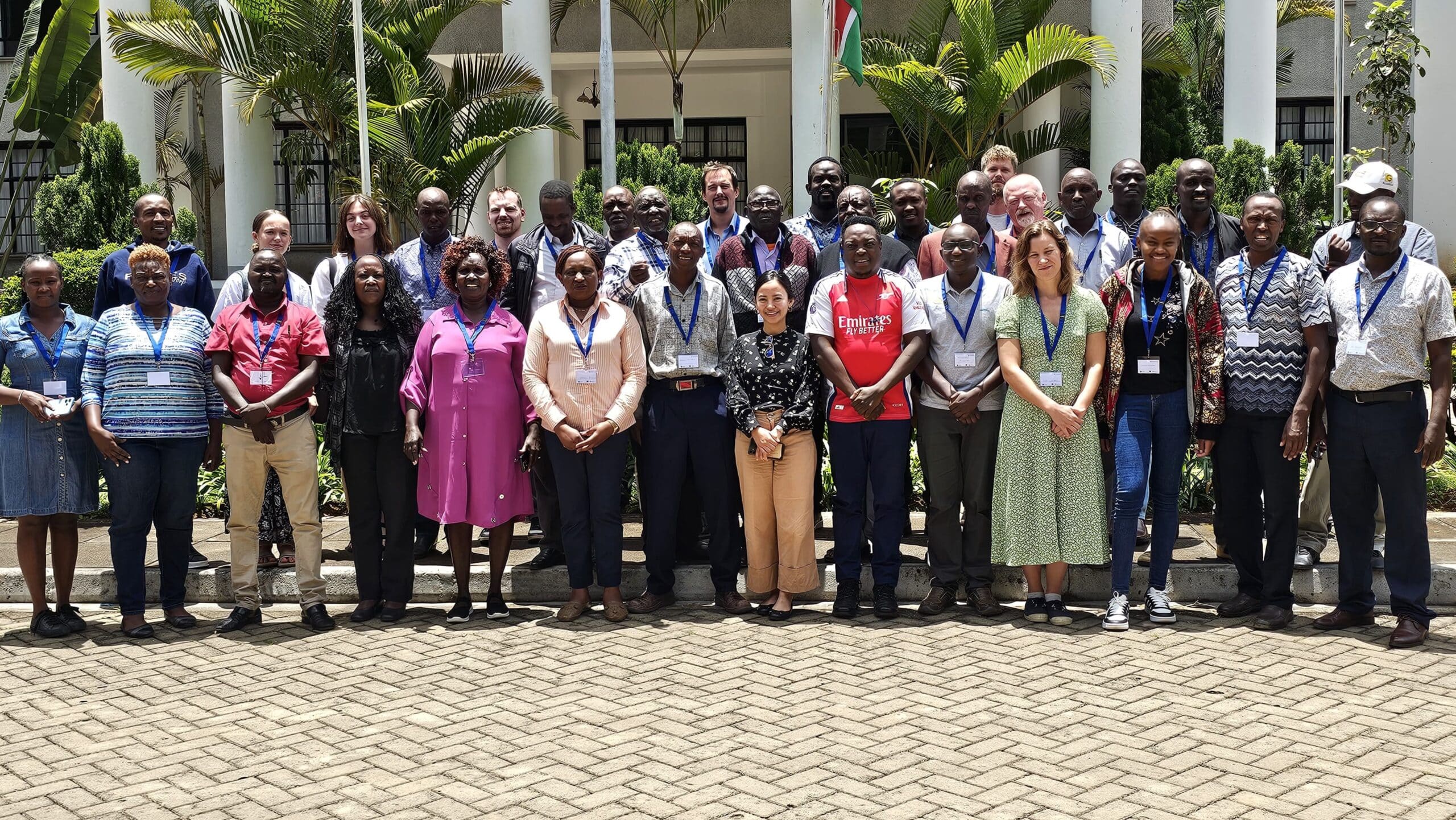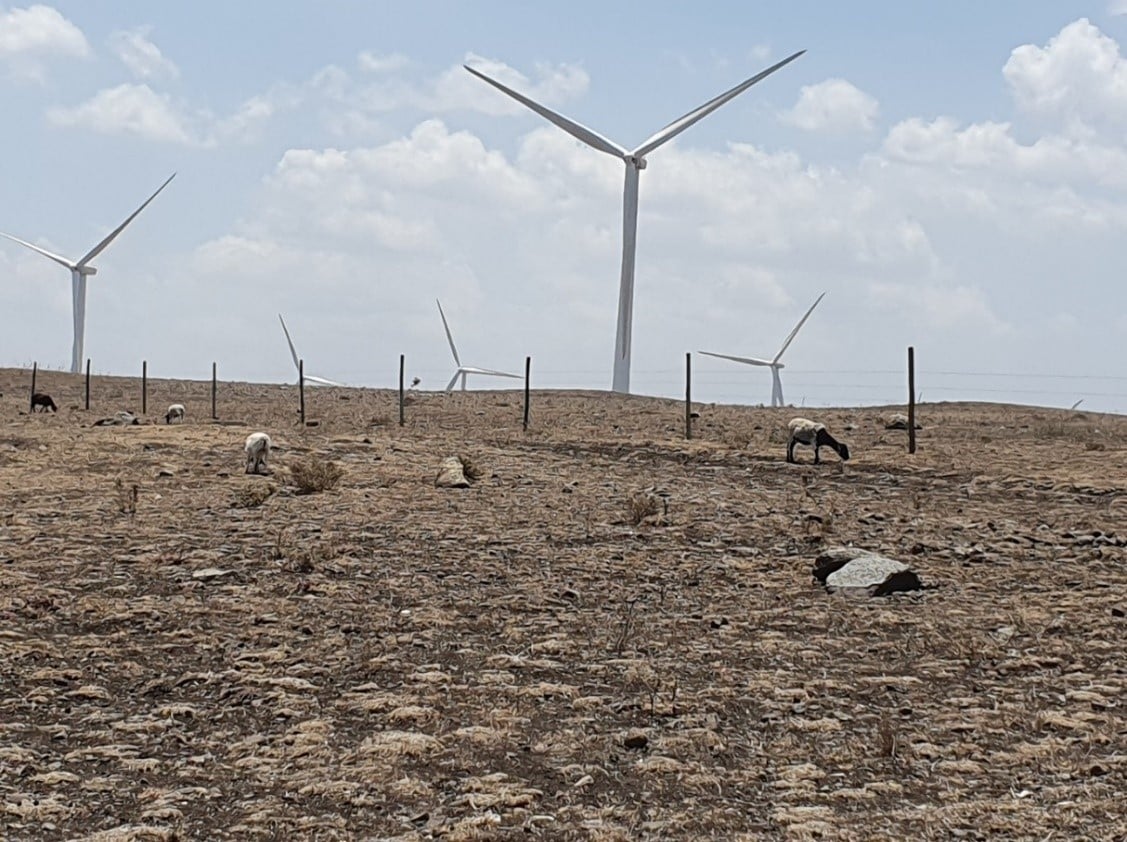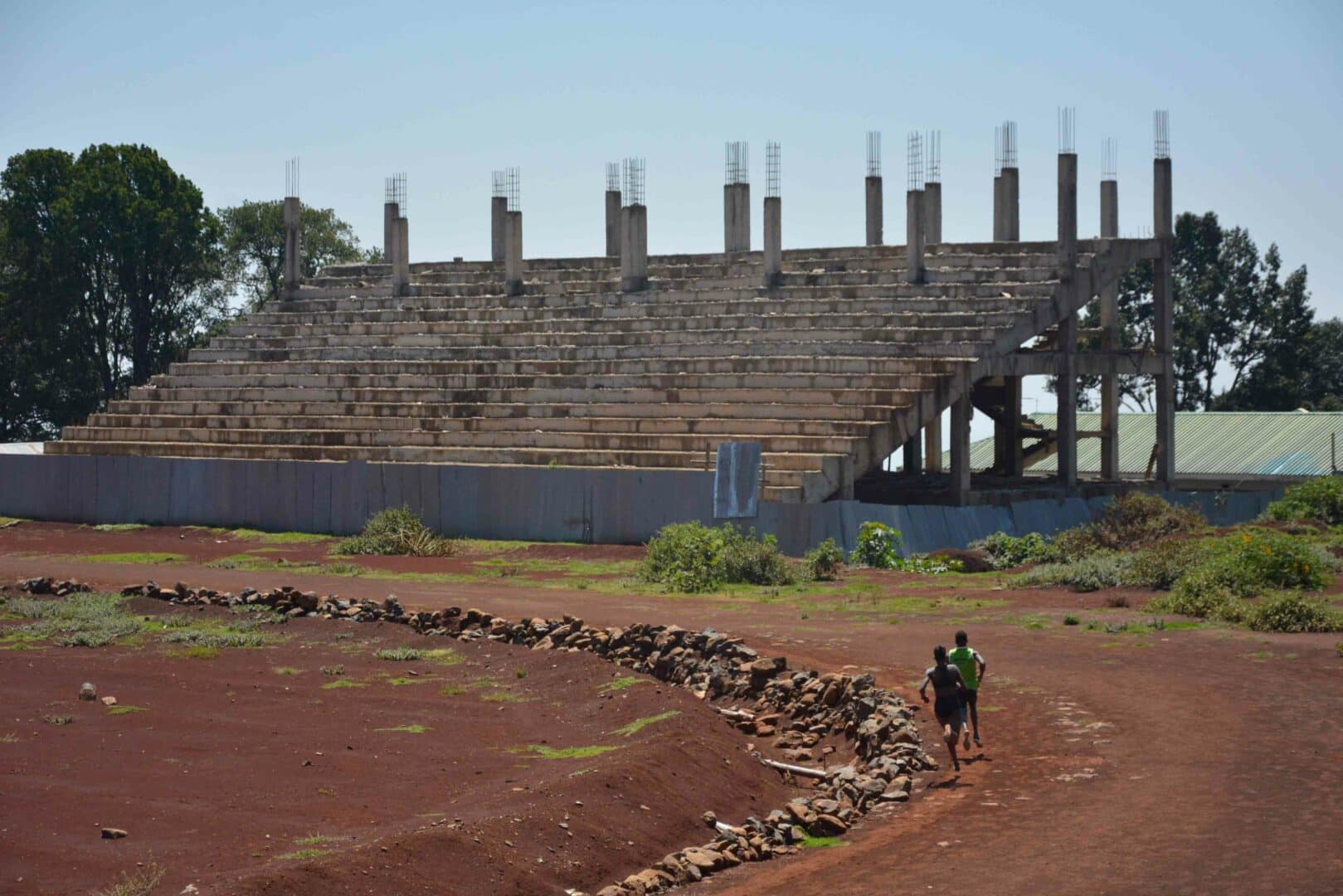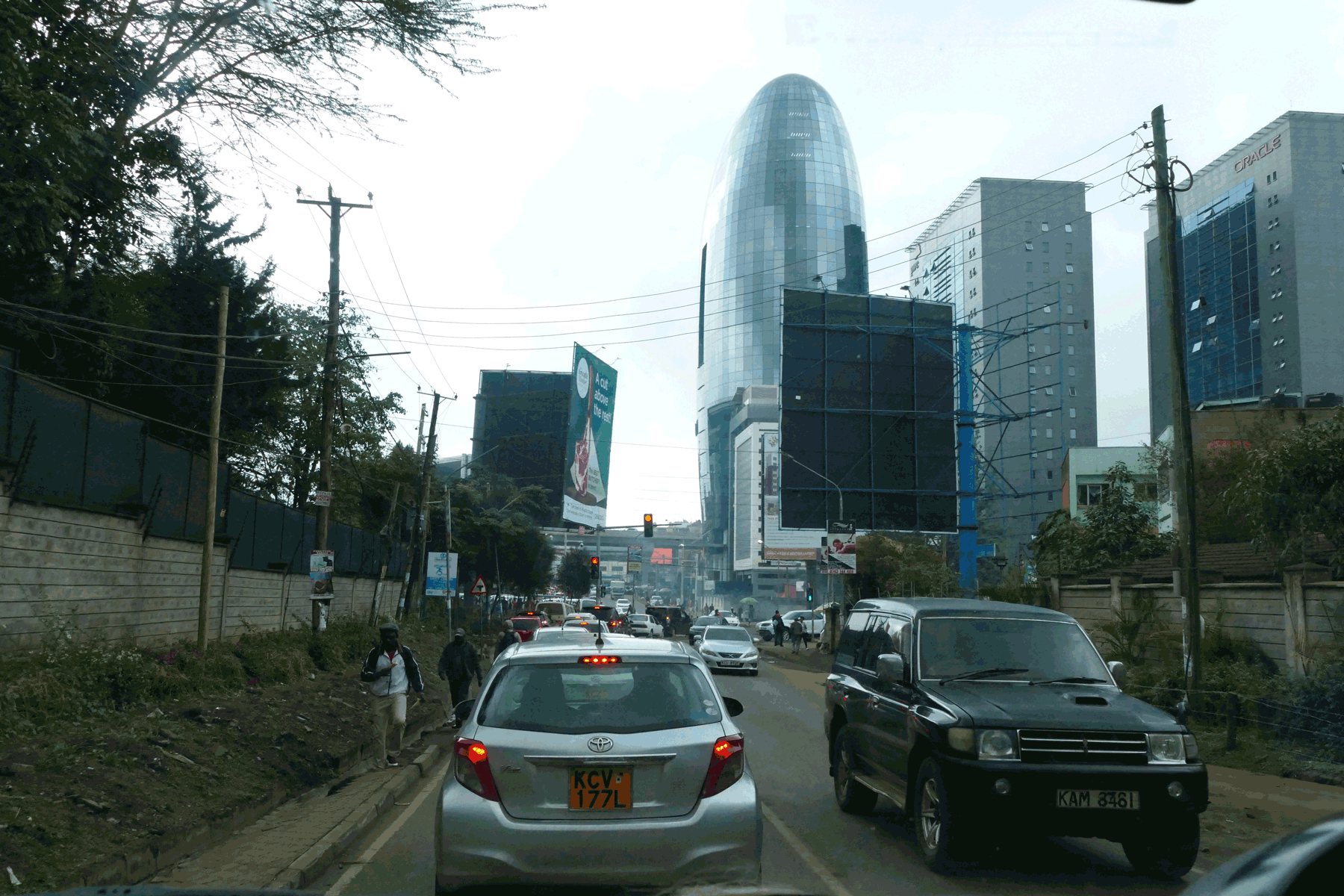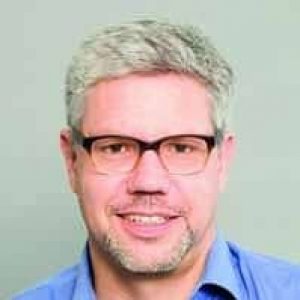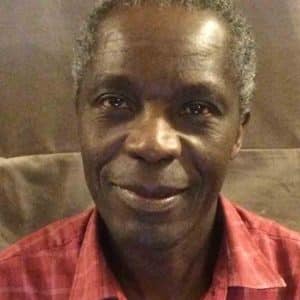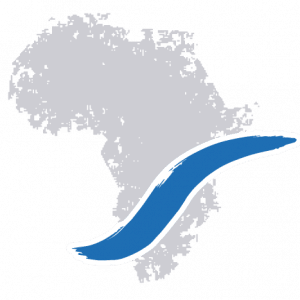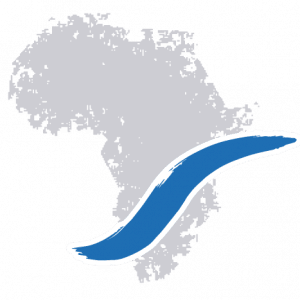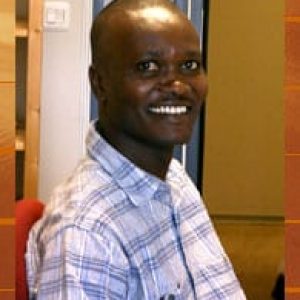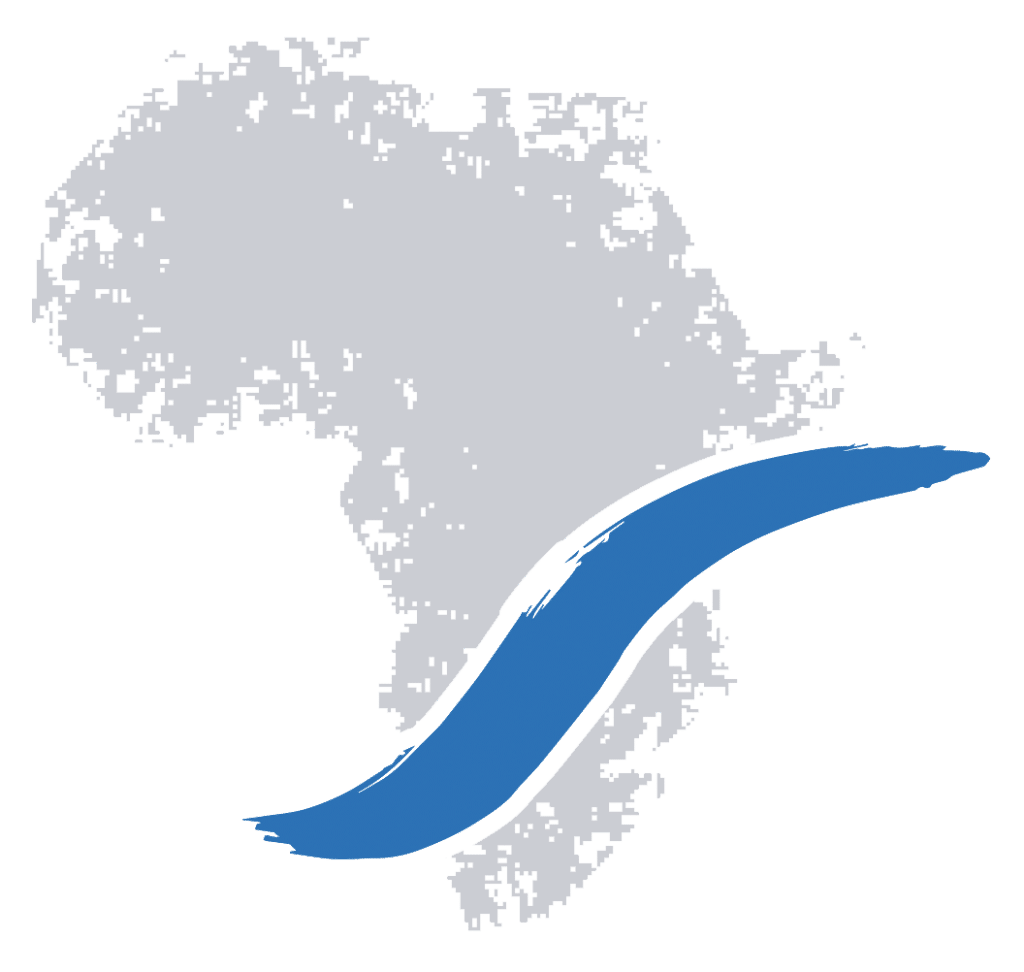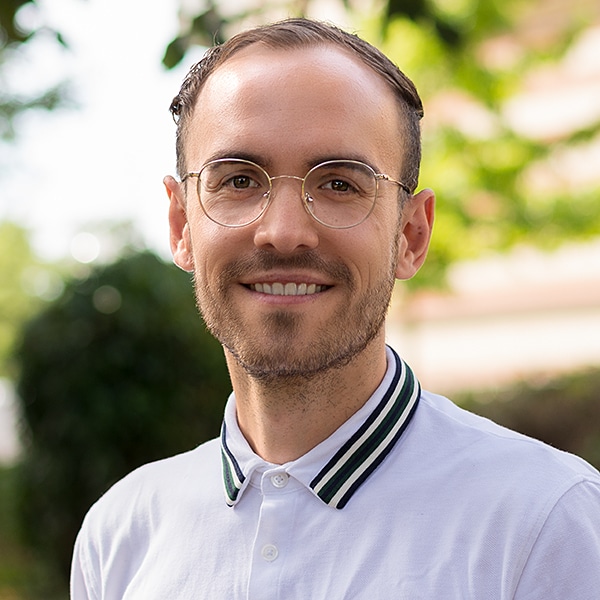CRC TRR 228 Project C02
Energy Futures
Infrastructures and governance for renewable energies
C02 Energy Futures
Vision
Overall, the project will broaden the so-far still scarce academic knowledge on infrastructures and governance for renewable, especially geothermal, energy in the Global South.
Project Summary
This project explores visions, epistemic mobilities and strategic planning practices related to Kenya’s energy policy by focusing on the development and governance of geothermal infrastructures. The Kenyan energy sector has developed very dynamically in recent years with a shift from hydro and diesel to geothermal and wind energy, and great progress in electrification, thereby making Kenya a renewable energy pioneer in Sub-Saharan Africa. Based on the findings of the first project phase, we assume that relevant impulses and policies of future-making originate in transnational institutional contexts and knowledge communities. Important actors include government representatives, policy specialists, technology experts, and consultants of various geographical and institutional backgrounds who interact and cooperate in framing and envisioning geothermal development in Kenya and elsewhere. The project explores the linkages between technologies, institutions, and these actors, the governance and dynamics of Kenya’s energy sector, and its embeddedness in the wider East African Region. We focus on the transnationally operating communities of practice and explore their knowledge resources and practices, on the geothermal visions and plans produced by them, and on how institutional contexts at various scales encourage and facilitate – or interfere with – these visions, plans, and resulting policies and implementation. Conceptually, the project focuses on the geographies and temporalities involved in future making, strategic (energy) planning, and the cross-scale dynamics in technology and policy development and transfer. Furthermore, the project not only explores how geothermal futures and infrastructures are envisioned, planned, and implemented, but also how geothermal development and infrastructures contribute to socioecological transformations and land-use changes in the Kenyan Rift Valley.
Research Regions: Kenya, Namibia
Problem Statement
What dynamics of future-making are associated with the planning and implementation of large-scale renewable energy projects in previously marginalized dryland areas? Focusing on visions, epistemic mobilities and strategic planning practices related to geothermal development and Kenya’s energy policy, this project explores the risks and opportunities, land-use changes and governance of infrastructures at the interface of global and local dynamics.
Key Questions
- What visions of the future are associated with geothermal development and its direct-use applications? With what rationales and time horizons?
- How do institutional contexts at various scales encourage and facilitate – or interfere with – such visions and the resulting policies? Which actors are involved as drivers and/or knowledge providers?
- What are the ideas and approaches to finance and implement geothermal visions and infrastructures?
- What (international) networks, power relations, epistemologies, and socioeconomic conditions constitute the community of practice of (Kenyan) geothermal experts, and in what ways do they drive the development of “geothermal futures” in Kenya?
- How and by whom are direct-use applications and the related infrastructures planned, implemented, and financed? Where does the knowledge applied in these processes originate, and by whom and how was it produced and transferred to the Kenyan Rift Valley?
- What are the anticipated and observed impacts of geothermal development, its direct-use applications and associated rural electrification on local livelihoods, land-use changes, and social-ecological transformation?
- How does anticipation, planning, and implementation of geothermal development, its direct-use applications and associated rural electrification create or reinforce conflicts over land and over potential benefits?
Methodology
- Qualitative methods (especially expert interviews and ethnography)
- Survey analysis
Outlook for Phase III
In the third phase of the CRC228, project C02 will extend its research on renewable-energy futures and widen its scope to include related industrial developments and further economic and financial impacts, particularly along the geothermal value chain, and based on three case studies. Given that Kenya continues to develop into a global role model for renewable-energy transformation and generates almost 90% of its electricity from renewable sources, it is essential to study the (local) economic consequences of this success story in more detail.
In two economic-geography case studies, we will look at how the production of renewable electricity as well as geothermal heat and steam become the basis for future-making in the form of (green) industrial development visions, plans and investments in geothermal project areas. This can include the planning and establishment of nearby industrial parks, direct-use activities of various kinds as well as green-hydrogen production and further use along industrial and agricultural value chains. In the two case studies – direct use and green hydrogen – we will analyse who are the actors and institutions driving and developing, or criticizing and opposing, these visions and plans. We will examine conflicts and controversies around these developments, whether and how they are financed and implemented (or not), what are the expected or realized benefits and who are the (potential) beneficiaries. We will explore these issues from a multiscalar and comparative perspective to scrutinize the renewable energy–green industrialization nexus, associated value chains and their cross-scale geographies of supply and demand, financing and policy support. In the anthropology case study, we will focus on the household and community level, and on how geothermal project developments affect local communities economically and financially.
To this end, we will do an in-depth ethnographic study on how the Baringo-Silali development, the largest geothermal exploration area in Kenya, shapes and is shaped by local social, economic and cultural circumstances. An assemblage perspective will be adopted in order to understand, how monetary transactions in the context of geothermal and ancillary infrastructure dynamize and change relations between people and between people and their environments.
Overall, our research will contribute to a better understanding of visions of geothermal, and more generally renewable-energy, futures and related future-making practices, and how they lead to land-use change and social-ecological transformation as well as intended and unintended socio-economic changes, and how local communities (can) benefit from or become negatively affected by these developments.
Key Findings from Phase II
In the second phase of the CRC 228 we significantly deepened and broadened our knowledge and, in addition to our new empirical results, developed new conceptual approaches, most importantly the concepts of “ancillary infrastructure” and “governance of future-making” (Greiner and Klagge, 2024; Klagge et al., 2025; for details see below). While continuing our empirical research on the Baringo-Silali geothermal project (main empirical focus in the first phase), we now also included other geothermal projects in Kenya as well as the relevant international expert networks. Furthermore, we extended our research to large-scale wind and solar PV projects in Kenya. An additional and rather recent focus in the second phase was on green-hydrogen visions and projects, in which renewable electricity is used to split water into oxygen and hydrogen; the latter about to become an important energy carrier to decarbonize energy-intensive industries (e.g. cement, steel, fertilizer) and long-range transport. While most of our empirical research took place in Kenya, green-hydrogen developments and future-making are more advanced in Namibia, which is where we conducted exploratory work on that issue. In the following we summarize our most important second-phase results in seven points:
(1) Using political ecology as a theoretical background, we developed a novel conceptual approach to understand the distribution of harm and benefits from geothermal development, which analyses under which conditions such projects can become “landscapes of value” or are in danger of turning into “sacrifice zones” (Greiner, Klagge and Owino, 2023).
(2) Furthermore, based on our empirical findings we developed the concept of ancillary infrastructures and thus directly contributed to the CRC 228’s conceptual focus on infrastructuring. We define ancillary infrastructures as “new and/or retrofitted infrastructure of various types, such as access roads or water supply, necessary to implement and realize LSREPs [large-scale renewable energy projects], but not a direct part of the energy producing or transmitting complex” (Greiner and Klagge, 2024, p. 1). In Greiner and Klagge (2024) we show how temporalities are important in understanding their positive and negative externalities, and thus their role for achieving local acceptance of LSREPs.
(3) Julia Wummel, our anthropology PhD student, focused her research on geothermal knowledge providers and transfer as well as on expert networks. Wummel followed a cohort of experts from various Kenyan geothermal companies to prolonged training sessions in Iceland and back to Kenya. Based on this multisited-ethnography methodology, she found that participation in the program is a kind of rite of passage for the group of Kenyan experts, which provides them with a “stamp of approval” on completion of the measure and gives them a higher status in the Kenyan industry (Wummel, 2024, p. 435).
(4) Frankline Ndi, our geography postdoc, focused his research on large-scale wind and solar PV projects in Kenya with a specific focus on local participation and justice concerns. For such projects to be accommodated in and by communities, “national-level policies need to be complemented with institutionally backed micro-level measures and mechanisms seeking to address local needs and concerns around land acquisition” (Ndi, 2024a, p. 14; Ndi, 2024b). In the Kipeto wind project in Kajiado County, for example, landowners have benefited from newly built houses, are receiving rents for their land and are allowed to continue accessing the same land to support their traditional livelihoods (Ndi, 2024a, b). Further research on other wind as well as solar PV projects shows that local communities are not necessarily against the projects per se, but that their main concern is how to be involved in and to benefit from the project, through for instance employment and corporate social responsibility (CSR) investments.
(5) Based on comparative empirical research on oil exploration in Turkana, the LTWP wind project in Marsabit and geothermal development in Northern Kenya, together with our partner Kennedy Mkutu (USIU), we argue that the specific frontier situation in Northern Kenya in combination with the devolution of political power in Kenya opens up new spaces for negotiations and associated conflicts (Greiner et al., 2022, 2025; Mkutu, 2023). Further work focusing on multiscalar institutional conditions includes a paper on the opportunities and challenges of devolution for electrification in Kenya, which is based on a CRC-sponsored master’s thesis by Marie Volkert (Volkert and Klagge, 2022).
(6) Due to its new role and increasing significance for energy developments in Africa, we placed an additional focus on green-hydrogen visions, future-making and institutions. Based on findings during a research trip to Namibia and South Africa with Linus Kalvelage from C01 and PL Klagge’s associated PhD student Benedikt Walker, we showed how green-hydrogen developments there are closely related to anticipated green-hydrogen demand from Germany (Klagge and Walker, 2024; Kalvelage and Walker, 2024).
(7) Lastly, we developed a theoretical approach that we call “governance of future-making”, which focuses on how actors try to coordinate their expectations about future economic development in different contexts and across scales over time (Klagge et al., 2025). We conceptualize the emergence of new regional development trajectories as resulting from the use of governance instruments with an increasing bindingness, and illustrate this idea with our findings on green-hydrogen developments in Namibia and South Africa, (Klagge et al., 2025).
Key Findings from Phase I
Large-scale renewable energy infrastructures in Kenya are mainly driven by Kenya’s Vision 2030, an ambitious plan to transform Kenya into a newly industrializing, middle-income country (Bauriedl and Klagge, 2018, Müller-Mahn et al., 2019). While there are some large wind projects (most prominently the Lake Turkana Wind Park) and plans for a coal-powered plant, the bulk of new energy capacity comes from geothermal development (Greiner and Klagge, 2021, in print). Baringo-Silali is the largest exploration site to date and has moved from preparing ancillary infrastructures and engaging local communities to successful drilling. Geothermal future-making in Baringo-Silali is governed by linkages among various stakeholders ranging from international investors such as the KfW and national government actors, especially the Geothermal Development Cooperation (GDC), to county and community representatives (Klagge et al., 2020, Klagge and Nweke-Eze, 2020).
Geothermal development in northern Kenya takes place in a frontier situation characterized by devolution, new land laws and a weak presence of state security forces. This creates a breeding ground for (inter-ethnic) conflicts over access to land (Greiner, 2020, Greiner et al., 2021), but also conflictual community-investor relations. While the Government of Kenya, KfW, and GDC, as well as private investors have articulated long-term visions regarding sustainability, green energies and economic growth (Klagge, 2021, Nweke-Eze and Kioko, in print), members of affected communities in Baringo have much more concrete goals such as jobs and access to drinking water. Resulting investor-community as well as inter-ethnic conflicts are fuelled by “economies of anticipation”, i.e. expectations of future developments, compensations and benefits.
Relation to the CRC
By focusing on the different visions of the future associated with large-scale infrastructures, this project will contribute to our understanding of cross-scalar linkages and drivers in land-use change and social-ecological transformations.
Publications
Aalders, J.T., Klagge, B. 2023. Sprung ins Ungewisse. Chancen und Risiken technologischer Entwicklung in Afrika. Geographische Rundschau, 75(10), 26–29
Bauriedl, S., Klagge, B. 2018. Stromerzeugung aus erneuerbaren Energien in Kenia. Praxis Geographie 48(3), 36-41. Link
Biber-Freudenberger, L., Bogner, C., Bareth, G., Bollig, M., Dannenberg, P., Revilla Diez, J., Greiner, C., Mtweve, P. J., Klagge, B., Kramm, T., Müller-Mahn, D., Moseti, V., Nyamari, N., Ochuodho, D. O., Kuntashula, E., Theodory, T., Thorn, J., Börner, J. 2025. Impacts of road development in sub-Saharan Africa: A call for holistic perspectives in research and policy. iScience, Volume 28, Issue 2. DOI
Greiner, C. 2020. Negotiating Access to Land and Resources at the Geothermal Frontier in Baringo, Kenya. In: Lind, J., Okenwa, D. and Scoones, I. (Eds.) Land, Investment & Politics: Reconfiguring Africa’s Pastoral Drylands. Woodbridge: James Currey, 101-109.
Greiner, C. 2022. African pastoralism: Plus ça change? From constant herders to social differentiation. In: Greiner, C. van Wolputte, S., Bollig, M. (Eds.) African Futures. Leiden: Brill Publishers, 36-46. Link
Greiner, C., Bollig, M. 2023. Fetishizing the Wild: Conservation, Commodities, and Capitalism. In: Bollig, M., et al. (eds.) Commodifying the ‘Wild’: Conservation, Markets and the Environment in Southern and Eastern Africa. Woodbridge: James Currey, 31-55.
Greiner, C., Greven, D., Klagge, B. 2021. Roads to change: Livelihoods, land disputes, and anticipation of future developments in rural Kenya. European Journal of Development Research, 33, 1044-1068. DOI
Greiner, C., Klagge, B. 2021. Elektrifizierung und Großprojekte der Stromerzeugung in Kenia. In: Becker, S., Klagge, B. and Naumann, M. (Eds.) Energiegeographie: Aktuelle Konzepte und Herausforderungen. Stuttgart: Ulmer, 289-302. Link
Greiner, C., Klagge, B. 2024. The temporalities and externalities of ancillary infrastructure in large-scale renewable energy projects: Insights from the rural periphery, Energy Policy, 193, 114303. DOI
Greiner, C., Klagge, B., Grawert, E., Mkutu, K. 2022. ‘Future-making and scalar politics in a resource frontier: Energy projects in northern Kenya‘, PLAAS Working Papers, No. 63. Full Text
Greiner, C., Klagge, B., Mkutu, K., Ndi, F. forthcoming. The making of a resource periphery? Scalar politics, frontier dynamics, and future-making in Northern Kenya. Accepted for publication in Müller-Mahn, D., Bollig, M. (eds.): Social-ecological Futures in Southern and Eastern Africa. Woodbridge: James Currey.
Greiner, C., Klagge, G., Owino, E.A. 2023. The political ecology of geothermal development: Green sacrifice zones or energy landscapes of value?, Energy Research & Social Science, 99, p. 103063. DOI
Greiner, C., Van Wolputte, S., Bollig, M. (eds.) 2022. African Futures. Leiden: Brill. DOI
Greiner, C., Vehrs, H. P., Bollig, M. 2021. Land-use and land-cover changes in pastoral drylands: Long-term dynamics, economic change, and shifting socioecological frontiers in Baringo, Kenya. Human Ecology, 49(5), 565–57. DOI
Greven, D. 2023. Bursting pipes and broken dreams: on ruination and reappropriation of large-scale water infrastructure in Baringo County, Kenya. Journal of Eastern African Studies, 17(1–2), 241–261. DOI
Kalvelage, L., Walker, B. 2024. Strategic coupling beyond borders: Germany’s extraterritorial agency in Namibia’s green hydrogen industry. Journal of Economic Geography, 24(6), 921–941. DOI
Klagge, B. 2021. The Renewable Energy Revolution: Risk, Investor and Financing Structures – with Case Studies from Germany and Kenya. In: Knox-Hayes. J. and Wójcik, D. (Eds.) Routledge Handbook of Financial Geography. New York: Routledge, 620-645. Link
Klagge, B. 2022. Geothermie-Großprojekte im ländlich-peripheren Kenia: Chancen und Herausforderungen zwischen Stromerzeugung für den nationalen Markt und regionaler Entwicklung durch direct use. Standort, 46(4), 271–278. DOI
Klagge, B., Greiner, C., Greven, D., Nweke-Eze, C. 2020. Cross-scale Linkages of Centralized Electricity Generation: Geothermal Development and Investor-community Relations in Kenya’s Semi-arid North. Politics and Governance, 8(3), 211-222. DOI
Klagge, B., Nweke-Eze, C. 2020. Financing large-scale renewable-energy projects in Kenya: investor types, international connections, and financialization. Geografiska Annaler: Series B, Human Geography, 102(1), 61-83. DOI
Klagge, B., Walker, B. 2024. Grüne Wasserstoffwirtschaft in Deutschland und die Wasserstoffpartnerschaft mit Namibia. Geographische Rundschau 76(4), 38–43
Klagge, B., Walker, B., Kalvelage, L., Greiner, C. 2025. Governance of future-making: Green hydrogen in Namibia and South Africa. Geoforum, 161, 104244. DOI
Klagge, B., Zademach, H.-M. 2018. International Capital Flows, Stock Markets, and Uneven Development: The case of Sub-Saharan Africa and the Sustainable Stock Exchanges Initiative (SSEI). Zeitschrift für Wirtschaftsgeographie / The German Journal for Economic Geography 62(2), 92-107. DOI
Kuiper, G., Greiner, C. 2025. Secondary towns and rural transformations: a translocal perspective. In Handbook on Rural-Urban Linkages in the Global South (pp. 114-128). Edward Elgar Publishing. DOI
Kuiper, G., Greiner, C. 2021. Export horticulture and labour migration in Kenya: Translocality and transiency in a secondary town. Geoforum. 122, 1.10. DOI
Lawhon, M., Follmann, A., Braun, B., Cornea, N., Greiner, C., Guma, P., Karpouzoglou, T., Revilla Diez, J., Schindler, S., Schramm, S., Sielker, F., Tups, G., Vij, S., Dannenberg, P. 2023. Making Heterogeneous Infrastructure Futures in and Beyond the Global South, Futures, 154, 103270. DOI
Mkutu, K. 2023. The frontier on the doorstep: development and conflict dynamics in the southern rangelands of Kenya. Journal of Eastern African Studies, 17(1–2), 22–39. DOI
Müller-Mahn, D., Dannenberg, P., Klagge, B. 2019. Das ländliche Afrika im Umbruch: Entwicklungskorridore und die Transformation des Agrarsektors. Geographische Rundschau 71(11), 10-16. Link
Ndi, F.A. 2024. Justice concerns in large-scale renewable energy projects: a case study echoing the importance of procedural justice in wind energy development in Kenya. Energy, Sustainability and Society, 14(47). DOI
Ndi, F.A. 2024. Land acquisition, renewable energy development, and livelihood transformation in rural Kenya: The case of the Kipeto wind energy project. Energy Research & Social Science, 112, 103530. DOI
Nweke-Eze, C. 2021. Neoliberal Reforms in Sub-Saharan Africa’s Electricity Sector: Implementation, Experiences, and Impacts. In: Osabuohien, E.S., Oduntan, E.A., Gershon, O., Onanuga, O. and Ola-David, O. (Eds.) Handbook of Research on Institution Development for Sustainable and Inclusive Economic Growth in Africa. Hershey: IGI Global, 410-430. DOI
Nweke-Eze, C., Kioko, E.M. 2021. ‘But we cannot do it all’: Investors’ sustainability tensions and strategic selectivity in the development of Geothermal Energy in Kenya. In: Leal Filho, W., Pretorius, R. and de Sousa, L. (Eds.) Sustainable Development in Africa, World Sustainability Series. Cham: Springer. Link
Owuor, S., Wamukota, C., Klagge, B., Greiner, C., Nyandega, I. 2025. Unintended Socio-Economic Transformations Associated with Large-Scale Renewable Energy Projects: The Case of Menengai Geothermal Development in Kenya. Review of Regional Research. DOI
Van Wolputte, S., Greiner, C., Bollig, M. 2022. Futuring Africa: An Introduction. In: Greiner, C. van Wolputte, S., Bollig, M. (eds.) African Futures. Leiden: Brill Publishers, 1-16. DOI
Volkert, M., Klagge, B. 2022. Electrification and Devolution in Kenya: Opportunities and challenges. Energy for Sustainable Development 71, 541-553. DOI
Wummel, J. C. 2024. Training as a Rite of Passage: Kenyan Geothermal Professionals Gaining Seniority in Iceland. Nordic Journal of African Studies, 33(4), 431–447. DOI

